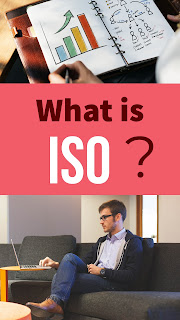ISO is derived from the Greek isos, meaning equal.
Check out the types available in ISO standards.
On 23 February 1947, ISO officially began the operations. ISO published over 22602 International Standards covering almost all aspects of technology and manufacturing. Today, It has members from 163 countries and 786 technical committees and subcommittees to take care of standards development. More than 135 people work full time for ISO’s Central Secretariat in Geneva, Switzerland.
What does ISO do?
ISO creates documents that provide requirements, specifications, guidelines or characteristics that can be used consistently to ensure that materials, products, processes, and services are fit for their purpose which ultimately help us to run our business effectively and successfully. ISO doesn't provide any certification directly. You can get it from a third party organization, such as DVCERT International.Why do you need ISO?
ISO certification gives your organization credibility, which is a very BIG thing in the Business Market. If you are ISO Certified, it will become the face of your company. You can stretch your products worldwide, involves a process of improvement and once your organisation complies with the standards, you’ll experience improved customer satisfaction and consequently relations, as well as an enhanced work environment.If you say "YES" to any of the following questions, then you should go for ISO.
- Do you want to run your business efficiently?
- Do you need to reduce costs?
- Do you want your customer satisfaction levels to be improved?
- Would you like to reduce your insurance fees?
- Do you need to make your processes and procedures more robust?
- Do you want your business benefit from heightened staff engagement and motivation?
Who are all can get ISO?
It does NOT matter what industry you are in (Service or manufacturing) – it can be a restaurant, consultancy, manufacturing company, government entity, Traders, provisional store, suppliers...etc.BENEFITS OF CERTIFICATION:
Even if you have a small business you’ll benefit from effective quality management through:
- Time and cost savings
- Improved productivity and customer satisfaction
- Your organisation’s senior management will have efficient ways to manage areas of responsibility will be clearly defined.
- Once certified, you’ll gain credibility in the industry and a competitive edge, especially when tendering for public work projects.

Comments
Post a Comment